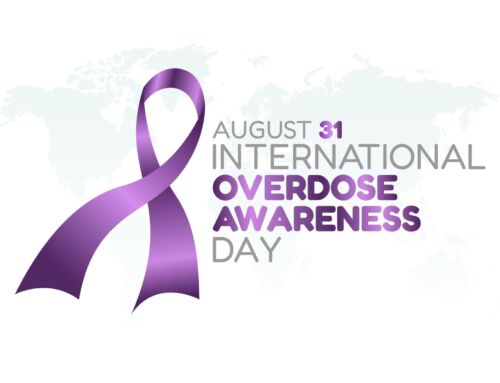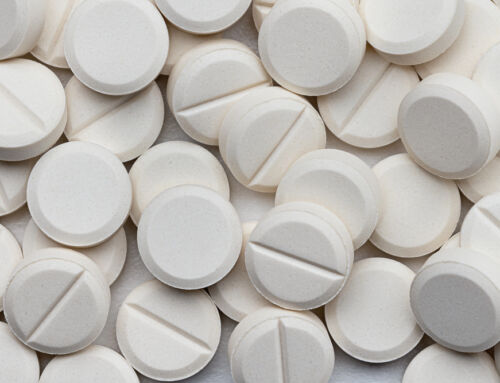The ongoing opioid epidemic continues to devastate individuals, families, and communities across the United States. As the crisis grows, so does the demand for diverse and effective addiction treatment options. Among these, outpatient treatment for opioid addiction has emerged as a flexible and powerful solution for many. Whether as a first step or a continuation of care following inpatient treatment, outpatient programs offer a wide range of services designed to help people achieve and maintain sobriety while integrating recovery into everyday life. Recovery at the Crossroads in Blackwood, New Jersey provides a wide range of services designed to help people achieve and maintain sobriety while integrating recovery into everyday life. Call us today at 888-342-3881 or contact us online if you or someone you love is struggling.
Outpatient vs. Inpatient Treatment: Understanding the Differences
To make informed decisions about care, it’s important to understand how inpatient and outpatient treatment options differ. Here’s a breakdown of the key contrasts:
- Living Arrangement: Outpatient treatment allows individuals to live at home and attend scheduled therapy sessions. Inpatient treatment requires individuals to stay at a facility full-time.
- Program Duration: Outpatient programs can extend from a few weeks to several months, depending on individual needs and progress. Inpatient rehab typically involves 30 to 90 days of continuous, residential care.
- Cost: Outpatient care is typically significantly more affordable, with fewer associated living and facility costs. Inpatient care is more expensive due to housing, food, and 24/7 medical supervision.
- Appropriateness: Outpatient treatment programs are best suited for individuals with mild to moderate substance use disorders, stable home environments, and strong motivation to recover. Inpatient programs are more appropriate for severe addiction, risk of complicated withdrawal, or lack of a safe home environment.
- Flexibility and Life Impact: Outpatient services offer maximum flexibility, minimizing disruptions to work, school, or caregiving responsibilities. Inpatient care is immersive but highly structured, which often requires individuals to pause normal daily activities.
This comparison reinforces the importance of personalized care. While some individuals may require the stability and intensity of inpatient detoxification, many can thrive in an outpatient setting that supports their real-life responsibilities while still delivering structured, effective care.

1. Greater Flexibility and Real-World Integration
The first and most immediate advantage of outpatient addiction treatment is the flexibility it provides. Unlike inpatient rehab, which requires individuals to stay at a treatment facility 24/7, outpatient programs allow patients to return home after therapy sessions. This enables them to continue fulfilling work, education, or family obligations while still attending therapy sessions and receiving support.
Outpatient treatment programs—including intensive outpatient programs (IOPs) —are structured to provide a high level of care while maintaining flexibility. This model allows patients to practice the coping strategies they learn during treatment in real-time, within the actual environments where stressors and triggers may arise. Such direct application improves the recovery process and helps reinforce behavioral changes. Many patients find that this flexibility enhances their long-term ability to manage drug abuse and navigate complex emotional landscapes.
2. More Affordable and Accessible Care
The cost-effectiveness of outpatient care makes it a highly accessible form of addiction treatment, especially for individuals without extensive insurance coverage. Inpatient settings typically include lodging, 24-hour care, and meals, significantly increasing expenses. In contrast, outpatient services eliminate those residential costs, making care more affordable while still delivering evidence-based interventions.
For many people, this affordability is a deciding factor when seeking treatment. It reduces the financial strain associated with addiction recovery and enables more individuals to start treatment early—before symptoms and substance use escalate further. Some programs may even be covered by Medicaid, Medicare, or other insurance options.
Moreover, intensive outpatient treatment offers a middle ground between standard outpatient care and full inpatient detoxification or residential treatment, balancing effectiveness and cost. Many treatment centers now offer tiered services that can be tailored to the severity of the addiction and the patient’s stage of recovery.
3. Utilization of Existing Support Systems
A third key benefit of outpatient rehab is the opportunity to leverage the individual’s current support system. By continuing to live at home, patients remain closely connected to family, friends, and local support groups, which can play an integral role in long-term recovery.
Many outpatient rehabilitation programs actively involve families in the treatment process through family therapy and educational services. This enhances communication, strengthens relationships, and builds accountability. A supportive home environment can drastically improve outcomes for those undergoing substance abuse services, particularly for people dealing with both substance use disorders and co-occurring mental health challenges.
Being able to attend therapy sessions while staying embedded in a supportive network of loved ones reinforces the idea that recovery doesn’t have to be isolated from everyday life. For many, the opportunity to heal in the context of real-life relationships is not only practical but transformative. This is especially important for individuals who have experienced repeated cycles of drug treatment without adequate follow-up care or support at home.
In this setting, individuals benefit from ongoing support not only from family and peers, but also from counselors, recovery coaches, and treatment providers who monitor progress and adjust care as needed. This continuity helps ensure that individuals don’t feel abandoned after the initial stages of recovery and that they always have a team invested in their long-term success.
4. Access to Comprehensive and Specialized Treatment Services
Modern outpatient treatment settings offer a wide variety of therapeutic approaches and clinical services, including:
- Behavioral therapy (e.g., Cognitive Behavioral Therapy, Dialectical Behavior Therapy)
- Medication-assisted treatment (MAT) that can help manage withdrawal and cravings
- Dual Diagnosis services for co-occurring mental health conditions
- Peer recovery and support groups
This comprehensive approach addresses not only the substance abuse itself but also the underlying causes and related behavioral health concerns. These addiction treatment programs are designed to adapt to the complexity of each case and deliver specialized treatment as needed.
For individuals dealing with substance abuse and mental health conditions simultaneously, integrated care is essential. Combining addiction medicine with mental health care ensures both conditions are treated concurrently, improving the chances of sustained recovery.
Outpatient programs are increasingly offered at a wide range of outpatient facilities, making it easier for people in both urban and rural communities to access professional care without needing residential placement.
Call Recovery at the Crossroads in Blackwood, New Jersey today at 888-342-3881 or contact us online if you need help.
5. Customized Care and Patient-Centered Progress
No two people experience substance use disorders the same way. Outpatient addiction treatment excels in offering personalized care that evolves over time. After a thorough assessment—often based on the ASAM criteria—providers can place patients in the appropriate treatment setting.
For example, someone may begin in an intensive outpatient program with multiple weekly sessions and then gradually transition to a lower level of care. Alternatively, a patient in standard outpatient programs may require a temporary increase in intensity if their condition worsens.
Outpatient programs empower individuals to engage in their own care by encouraging shared decision-making. This collaborative treatment approach improves both adherence and outcomes. Patients who feel a sense of control over their treatment are more likely to stay engaged, participate actively in therapy sessions, and follow through with addiction treatment programs. Additionally, when individuals are managing withdrawal symptoms, outpatient care offers a supportive but non-restrictive environment where discomfort can be addressed without disrupting normal routines.
6. Minimal Disruption to Daily Responsibilities
Compared to inpatient care, outpatient settings allow individuals to maintain a sense of normalcy. Being able to care for children, continue working, or go to school reduces the emotional and logistical burdens that often accompany inpatient rehab. In turn, this minimizes the risk of economic instability or long-term disruptions to career and academic goals.
Additionally, outpatient programs build life skills in real-world contexts. Rather than delaying exposure to stressors, patients practice new behaviors and coping strategies while under professional supervision. This promotes self-sufficiency and builds confidence in recovery outside the clinical setting.
The outpatient model also reduces the stigma that can be associated with residential treatment. By blending recovery with daily life, individuals are less likely to feel isolated or labeled, which contributes to overall mental health improvements and encourages sustained participation in care. Over time, consistent engagement with an outpatient facility that provides integrated drug rehabilitation services supports meaningful life change.
7. Strong Long-Term Outcomes for the Right Candidates
While inpatient programs are essential for those with severe addictions or unstable living environments, outpatient treatment is extremely effective for individuals with mild to moderate substance use disorders, strong motivation, and solid support systems.
Multiple studies have shown that, when paired with intensive outpatient services and medication-assisted treatment, outpatient rehab can match or exceed the effectiveness of inpatient care. Success rates often range from 40–60% depending on duration, program structure, and level of patient engagement.
Critically, MAT can reduce the risk of opioid overdose by up to 50%. And retention in treatment—one of the strongest predictors of positive outcomes—is significantly improved when MAT is used in combination with behavioral therapy.
Additionally, people who stay engaged in outpatient drug rehab over time report substantial improvements in quality of life, mental functioning, and social relationships. With the right clinical match, the benefits of outpatient treatment extend far beyond abstinence to long-term stability and personal growth.

Outpatient Care as a Pillar of Recovery
As the opioid crisis evolves, so too must the strategies used to combat it. Outpatient opioid addiction treatment offers a proven, cost-effective, and patient-centered alternative to inpatient care, especially for those with stable living conditions and strong social support.
By providing flexible access to therapy sessions, mental health services, and evidence-based treatment programs, outpatient models allow individuals to pursue recovery without losing touch with daily responsibilities or loved ones. From early intervention to long-term relapse prevention, outpatient care has become a cornerstone of the addiction recovery landscape.
Call us today at 888-342-3881 or contact us online to learn more.
Outpatient Care at Recovery at the Crossroads: A Local Solution That Works
Located in Blackwood, NJ, Recovery at the Crossroads serves communities throughout the surrounding areas with outpatient treatment that respects cultural values, promotes long-term healing, and supports real-world reintegration.
Whether you’re stepping down from inpatient rehab or seeking structured support for the first time, our outpatient programs offer the tools, accountability, and compassion needed for sustainable recovery. With flexible options, personalized care plans, and a commitment to clinical excellence, we’re proud to be a trusted resource for opioid addiction treatment in South Jersey.
If you or a loved one is ready to take the next step, contact Recovery at the Crossroads today to learn how our outpatient programs can support your journey to lasting recovery. Call 888-342-3881 or contact us online.



